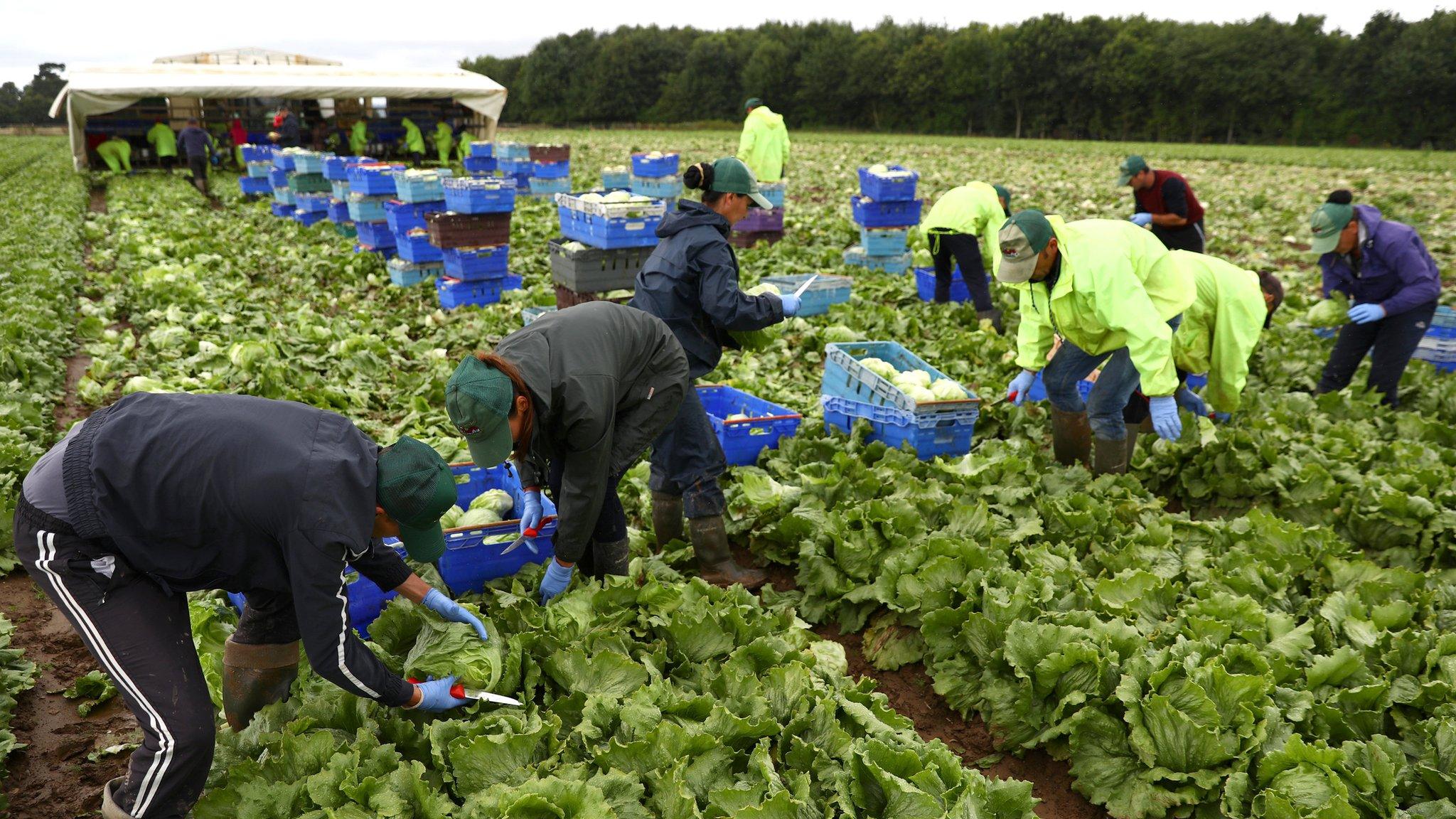What will Brexit mean for our bacon?
- Published
The United Kingdom imports the majority of the pork products we consume, from loins to bacon. With 17 months to go until we are due to leave the European Union, how will Brexit affect our pork?
Denmark is the main supplier of the UK's imported pork. There are thousands of pig farms across the country and pork is the Danes' third most valuable export.
And it is Jutland which is the heart of Danish pig country. At one farm, Baldershave, 35,000 pigs are born every year. Soren Sondergaard's farm has been in his family for five generations and the UK is one of their biggest markets.
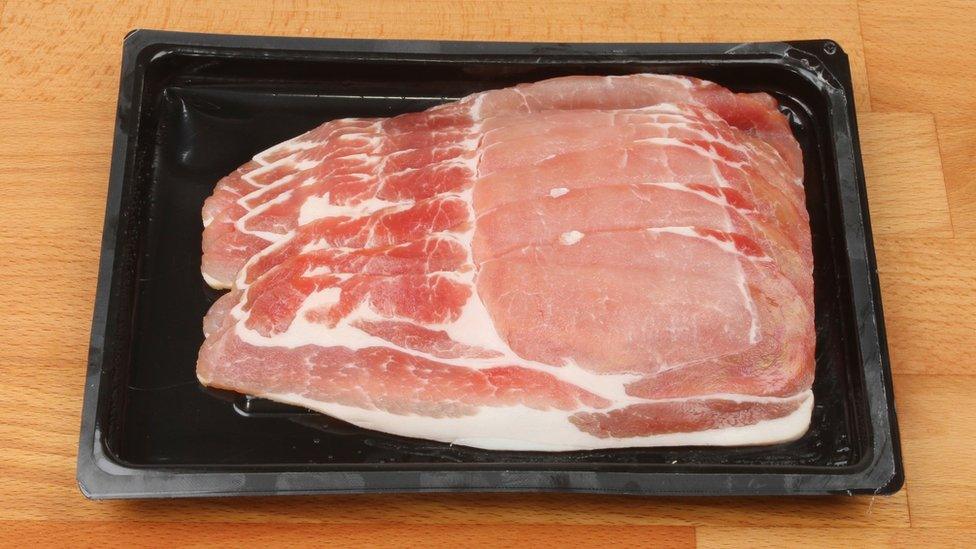
Denmark is the largest overseas supplier of pork products to the UK
"We follow it a lot, and we keep an eye on what is happening in the UK at the moment," says Mr Sondergaard.
"We hope of course we can continue to do trading together, but we have 130 markets all over the world which we will be looking to instead if it will be a hard Brexit."
The Danish port trade with the UK started 150 years ago, and now about 25% of all UK imported pork products come from Denmark.
What might happen to food exports after Brexit?
The single market has meant there are no tariffs on the food we import from this Nordic country. There have been warnings from the meat industry that if the UK adopts world trade tariffs then imported food could be more expensive.
Transport Secretary Chris Grayling said earlier this month that the UK would respond by: "Growing more here and buying more from around the world".

Soren Sondergaard hopes that Brexit won't significantly affect Danish pork exports to the UK
At the annual conference of the Danish pig industry, there is a positive mood about Denmark's future trading relationship with the UK. Brexit is one of the key issues on the agenda.
"The ideal situation for us would be that the UK would remain within the European Union, that unfortunately is not going to happen," says Christian Fink Hansen, from the Danish Agriculture and Food Council.
"So we hope that we will reach an agreement that will be as close as possible to the current situation."
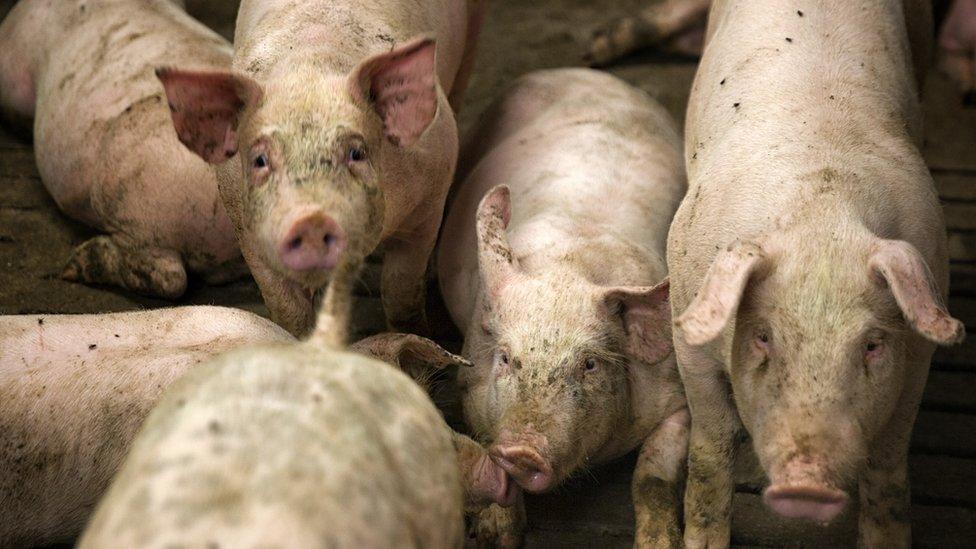
Rearing pigs is big business in Denmark
Mr Hansen adds: "We have high levels of animal welfare, high veterinary standards.
"The alternatives for you would be to look to Brazil, to Canada, to the US, where they have lower standards of animal welfare."
At its facility in the Danish city of Horsens, staff at Danish Crown - the world's largest pork exporter - are preparing pork loin which will be sent to the UK to be cured and made into back bacon.
"The only thing we know is uncertainty, and the one thing we know we don't like as a business is uncertainty," says Lars Albertsen, head of exports at Danish Crown.

Lars Albertsen hopes that Denmark's close ties with the UK will limit the impact of Brexit on Danish pork exporters
"We don't know what the trade agreement with the UK will be, but we know there is a need for imports [in the UK].
"And we also think the affinity there is between Denmark and the UK, especially with food, will prevail. We need the UK and the UK needs us as well."
The majority of the pork exported from Denmark to the UK travels via Esbjerg on the country's west coast.
Daily shipments sail to Immingham in Lincolnshire, and currently there are not any border checks.
Authorities at the port of Esbjerg are now closely watching what is happening across the North Sea.
"The UK is one of our top five export markets for Denmark," says Jesper Bank, the chief operating officer at the port.

Jesper Bank says that Danish ports can cope with any extra Brexit paperwork
"The total value of our exports [to the UK] is about 10bn euros ($12bn; £9bn) a year, so obviously we are concerned about what is going to happen [with Brexit].
"Mostly our concerns are not about the practicalities of what will happen, we are quite sure that if we get administrative burdens we can sort some of those out with the technology.
"But some of our concern is what will happen in the UK. Will your economy slow down? Will the buying power of the British people slow down?".
British hauliers have warned that the possible introduction of checks for goods coming into the UK could lead to queues at both British and continental ports.
Mr Bank says that he and his team are confident about their ability to cope with the possible changes.
"We are aware that even small delays in times can have effects on ports due to custom clearance," he says.
"This will obviously create some sort of line… in this port we have the capacity to cope with that, but I'm aware that some of our colleagues in the UK will have raised this issue."
- Published15 October 2017
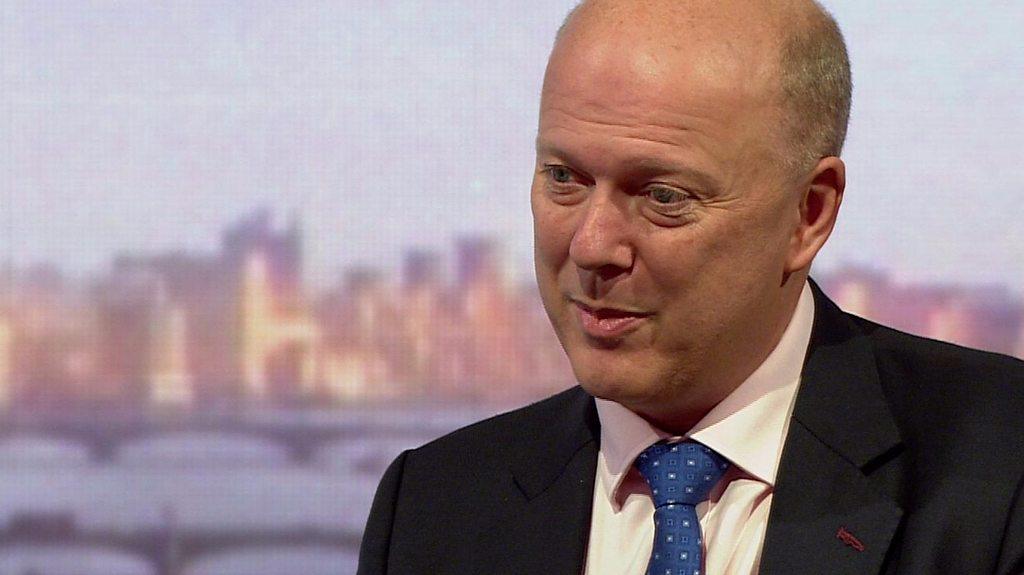
- Published20 September 2017
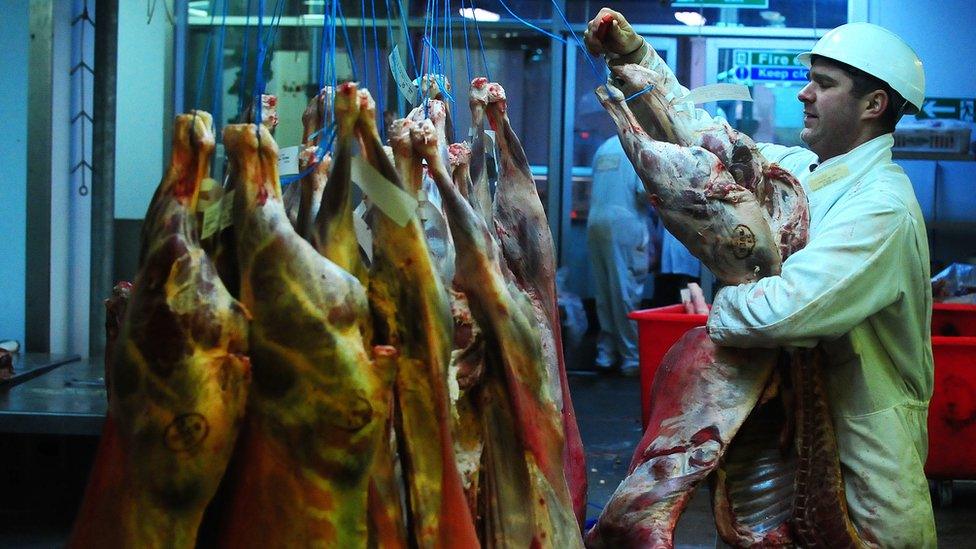
- Published20 September 2017
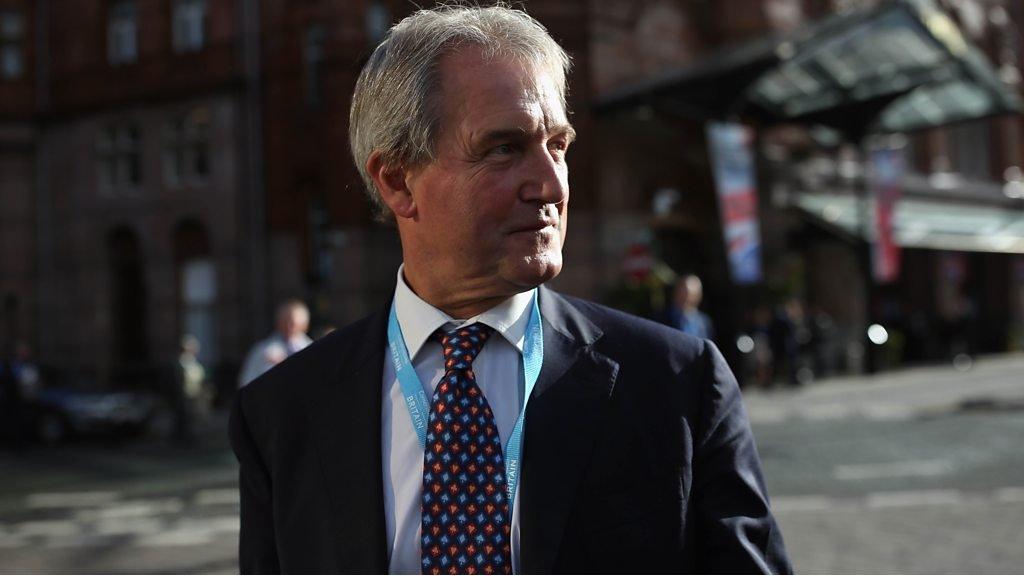
- Published24 August 2017
